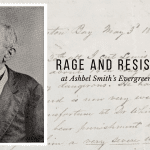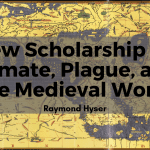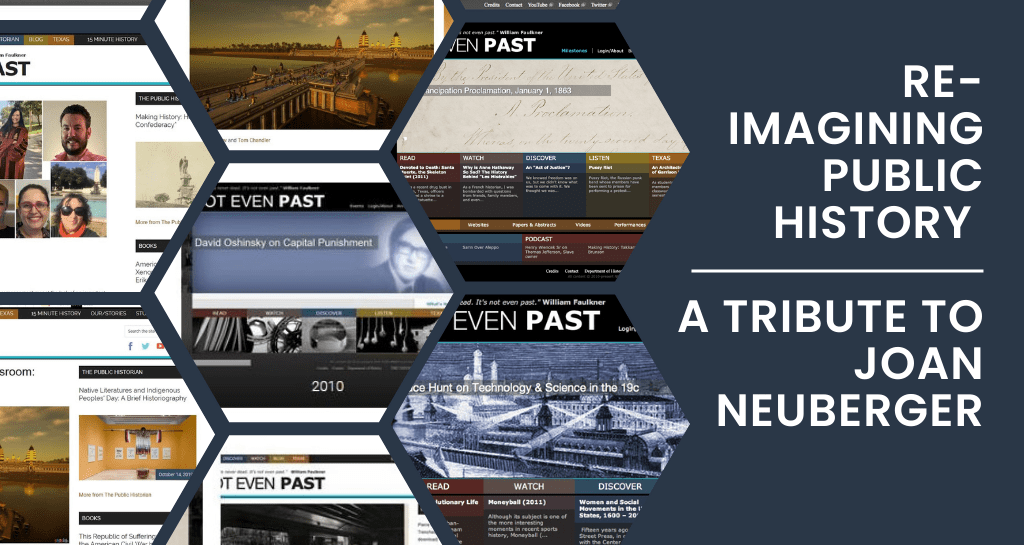
by the Editor of Not Even Past, Adam Clulow
As Not Even Past winds down for another academic year, we want to take a moment to celebrate the remarkable contribution of Dr. Joan Neuberger, our Founding Editor, who will be retiring from the University of Texas this summer. Joan guided the magazine for almost a decade from its formation before stepping down in 2019.
Many people worked on Not Even Past. It received consistent support from successive chairs of the department, the College of Liberal Arts and LAITS. Colleagues across the department and beyond gave generously of their time and expertise in writing for the magazine, which drew as well on the work of a group of exceptionally talented Associate Editors. But Not Even Past is also unimaginable without Joan.
When I first took over as Editor from Joan in 2019, I had no idea what lay ahead. Joan handled the task seemingly effortlessly, responding within minutes to any email and always knowing how to shape an article and improve an argument. In reality, and as I soon learned, this took an immense amount of effort, hundreds and thousands of hours each semester, managing the work of a magazine that publishes like a fully staffed magazine but with no permanent staff. Joan set the standard as editor and her immense energy, creativity and passion underpinned Not Even Past‘s growth and success.
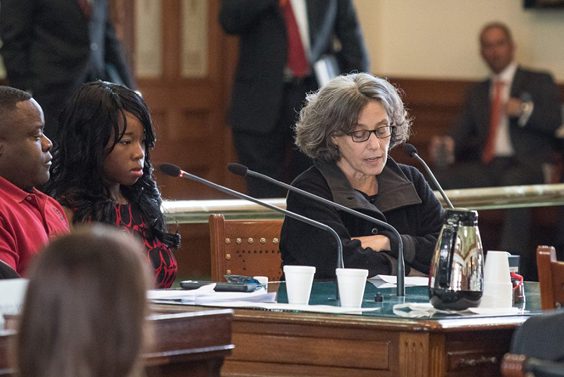
Across her career Joan has won many accolades. In 2018, she was awarded the Herbert Feis Award that is given annually to recognize distinguished contributions to public history. It is worth quoting the citation, which sums up Joan’s indefatigable energy: “As the driving force behind multiple noteworthy online history projects such as the Not Even Past website, the Thinking in Public project database, and the 15 Minute History podcast, Joan Neuberger’s scholarship harnesses the possibilities of the latest digital platforms for public engagement. Each year her work touches tens of thousands of people, both inside and outside the academy. In addition, she is an enthusiastic mentor and editor for other historians writing for a general audience.”
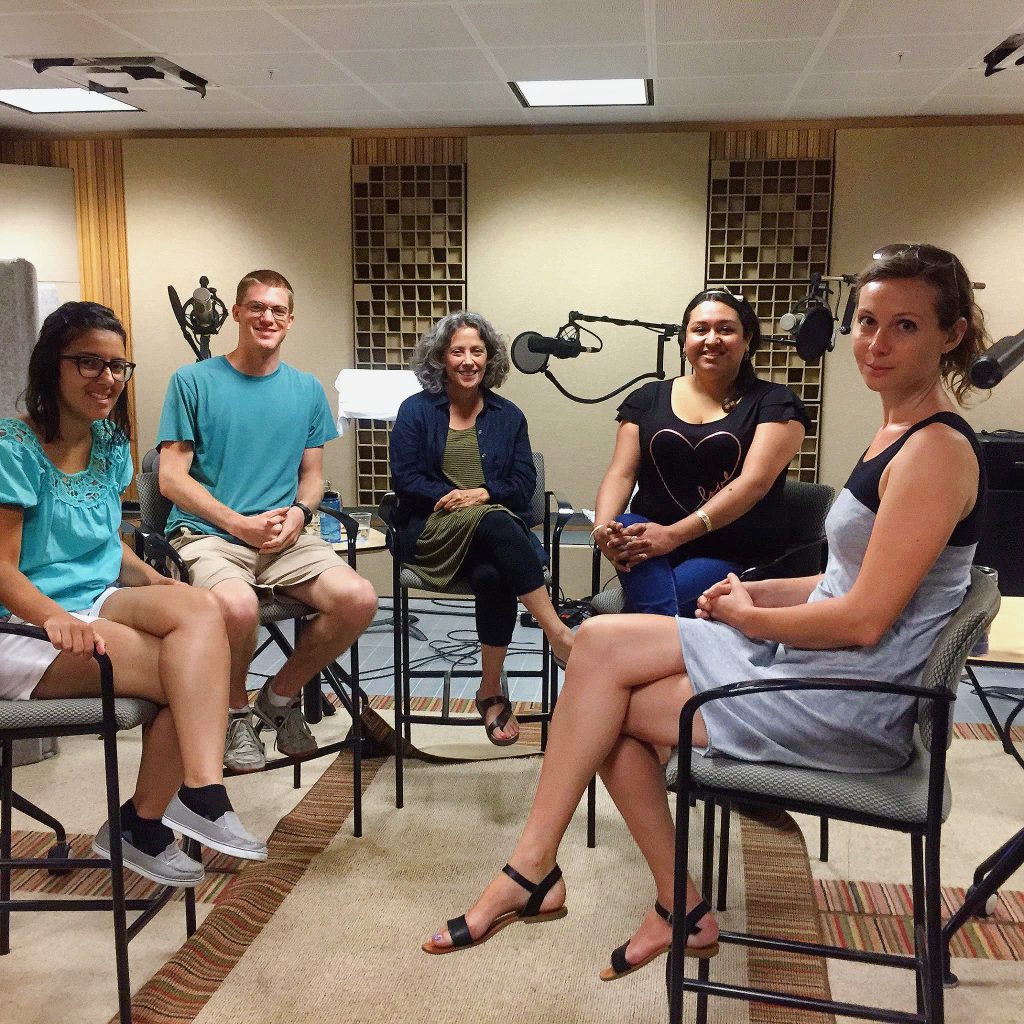
Joan has always reserved special time and energy for her work in training graduate students to become public historians. Below, we have reproduced just a few testimonials from current and former students, for they speak louder than any other accolades of how hard Joan has worked to train, inspire and accompany students on their academic journeys to become distinctive public voices in their own right.
Every year Joan recruited an Assistant Editor, who worked closely with her on every aspect of the site. In 2016-17, that was Emily Whalen, who wrote to us that “Working with Dr. Neuberger on NEP transformed the way I thought about public history. After a year as a graduate assistant for the blog, I began to understand public history was less an added perspective than it was a holistic philosophy, a way to approach our entire professional toolkit and bring the public along with us as we delve into the past. I will also always remember Dr. Neuberger’s generosity with younger scholars. She is a model for professional mentorship and thoughtful guidance.”
In 2017-18, Natalie Cincotta, took on the role. Here are her words: “I am so grateful for Dr. Neuberger’s exhaustive efforts to make public history a core part of the graduate program. Through Not Even Past, 15 Minute History, Thinking in Public and coursework, Dr. Neuberger has engaged graduate students as writers, editors, and producers in the creative process of making history scholarship broadly accessible. Many of the graduate students who have worked or written for NEP (and other projects) have gone on to create their own websites and podcasts, write for national news publications, and use public history tools in the classroom. Thanks to resources like NEP, graduate students will go out into the world with a repertoire of tools and skills to engage the public in our work as historians in new and exciting ways. “
In 2018-19 the role was filled by Jesse Ritner who writes that “I had the privilege of working with Dr. Neuberger as the Assistant Editor and Books Editor of Not Even Past, where I have also contributed several articles. Writing for NEP, as much as anything has helped me write clearly, in a voice that is my own. Dr. Neuberger’s guidance, and the tremendous amount of energy she put into my pieces, is rare to receive outside of a student’s relationship with their advisor, and I think is one of the most valuable things that professors can offer graduate students. Working for her gave me a sense of what it means to work in digital history and public history, as well as to see (and at times experience) the tremendous amount of work it takes to produce and maintain projects as large as NEP. Her honesty, at times intensity, and her dedication to her project and the students who work for her and write for her, is something that I think the department will sorely miss.”
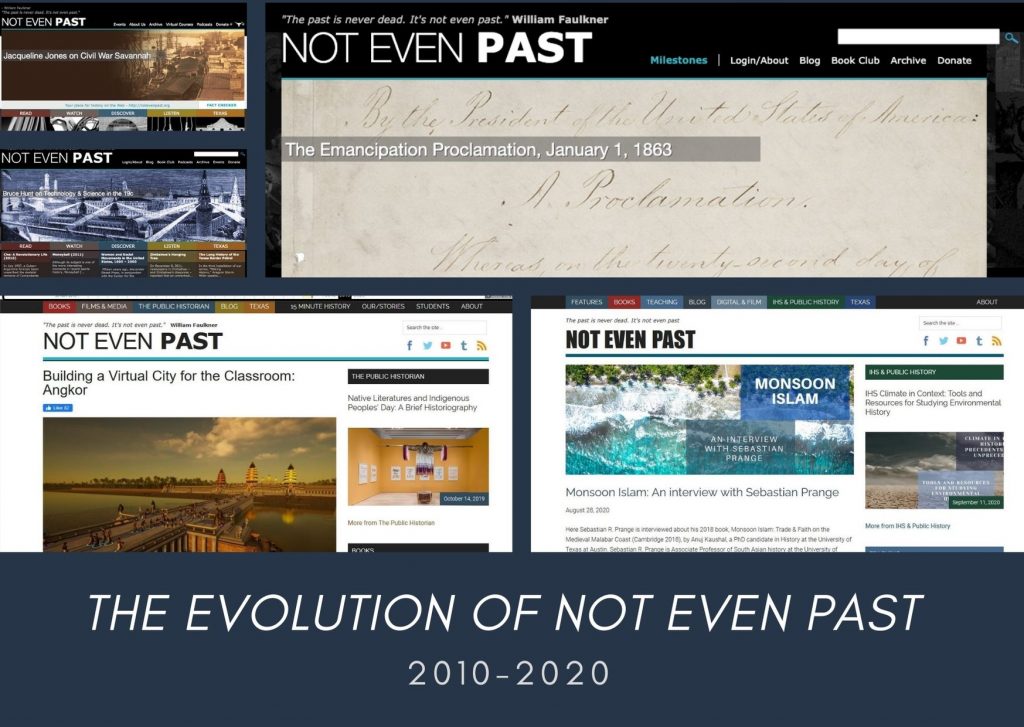
Alina Scott, the Assistant Editor from 2019 to 2020, explains that “It has been a pleasure working with and learning from Dr. Neuberger. Her Public and Digital History class sparked my interest in public scholarship. Her ability to take her students’ work seriously, prompted me to apply to work with her on NEP. While serving as the assistant editor of NEP, this became even more clear. Dr. Neuberger’s dedication to her students and public history is evident in how much time she spends with our work. Her care and attention to detail in editing and engaging with the main arguments of NEP submissions go above and beyond the requirements of the job. She also pays keen attention to the needs of the public, adapting NEP to reflect those needs. Not Even Past remains an important resource for UT graduate students and faculty, relevant digital tool, and contribution to public scholarship because of the dedication of Dr. Neuberger.”
Many other current and former students contributed to Not Even Past. Kristie Flannery writes that “With Not Even Past, Joan offered history Ph.D. students opportunities to learn about and experiment with how to write the kind of history that people want to read. Joan encouraged us to use our developing expertise to produce clear, engaging, and provocative pieces for public consumption about scholarly monographs as well as novels, films, music and museums that we love (or hate). Producing the high quality stuff you see on the blog involved a lot of patient and kind editing from Joan. Contributing to Not Even Past transformed my understanding of history as practice, of what it means to be a historian and to write history. Thank you!” For Brittany Erwin, a PhD candidate in the department,“Dr. Neuberger’s public history course was a jumping-off point for my digital humanities research. She was a great soundboard and editor, and I am so grateful for her insights.”
We leave the final words to Rebecca Johnston who writes that “the very existence of NEP encourages history students to think about the importance of our work in the public sphere. But it does more than help us find our relevance to the public – it pulls us out of our academic silos into a collective conversation with others in our own department. With NEP, Dr. Neuberger has created a community space that helps to make our department more whole.”
Not Even Past re-imagined Public History at the University of Texas at Austin and we thank Joan for all she did to turn the magazine into such a valuable resource for history online.
The views and opinions expressed in this article or video are those of the individual author(s) or presenter(s) and do not necessarily reflect the policy or views of the editors at Not Even Past, the UT Department of History, the University of Texas at Austin, or the UT System Board of Regents. Not Even Past is an online public history magazine rather than a peer-reviewed academic journal. While we make efforts to ensure that factual information in articles was obtained from reliable sources, Not Even Past is not responsible for any errors or omissions.
